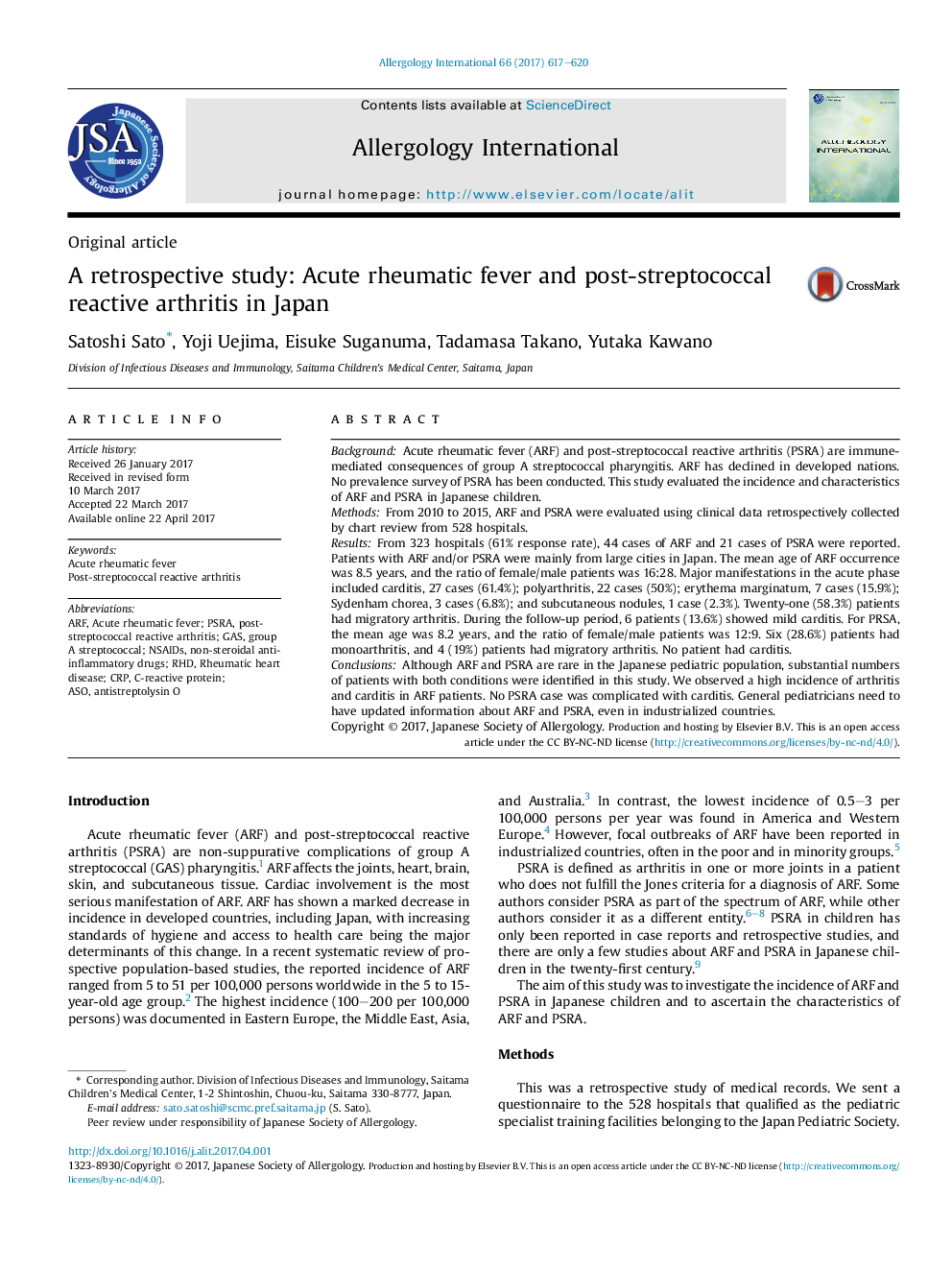| Article ID | Journal | Published Year | Pages | File Type |
|---|---|---|---|---|
| 5665155 | Allergology International | 2017 | 4 Pages |
BackgroundAcute rheumatic fever (ARF) and post-streptococcal reactive arthritis (PSRA) are immune-mediated consequences of group A streptococcal pharyngitis. ARF has declined in developed nations. No prevalence survey of PSRA has been conducted. This study evaluated the incidence and characteristics of ARF and PSRA in Japanese children.MethodsFrom 2010 to 2015, ARF and PSRA were evaluated using clinical data retrospectively collected by chart review from 528 hospitals.ResultsFrom 323 hospitals (61% response rate), 44 cases of ARF and 21 cases of PSRA were reported. Patients with ARF and/or PSRA were mainly from large cities in Japan. The mean age of ARF occurrence was 8.5 years, and the ratio of female/male patients was 16:28. Major manifestations in the acute phase included carditis, 27 cases (61.4%); polyarthritis, 22 cases (50%); erythema marginatum, 7 cases (15.9%); Sydenham chorea, 3 cases (6.8%); and subcutaneous nodules, 1 case (2.3%). Twenty-one (58.3%) patients had migratory arthritis. During the follow-up period, 6 patients (13.6%) showed mild carditis. For PRSA, the mean age was 8.2 years, and the ratio of female/male patients was 12:9. Six (28.6%) patients had monoarthritis, and 4 (19%) patients had migratory arthritis. No patient had carditis.ConclusionsAlthough ARF and PSRA are rare in the Japanese pediatric population, substantial numbers of patients with both conditions were identified in this study. We observed a high incidence of arthritis and carditis in ARF patients. No PSRA case was complicated with carditis. General pediatricians need to have updated information about ARF and PSRA, even in industrialized countries.
